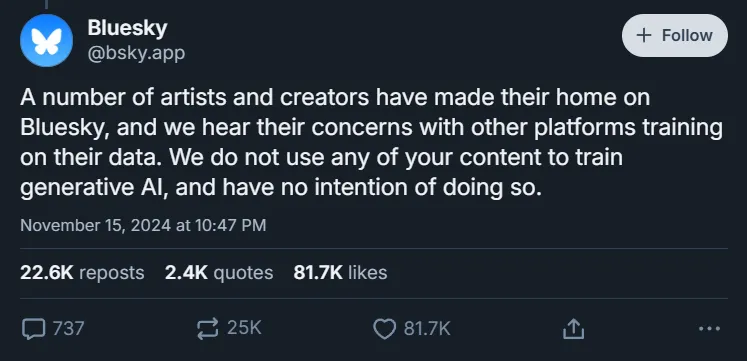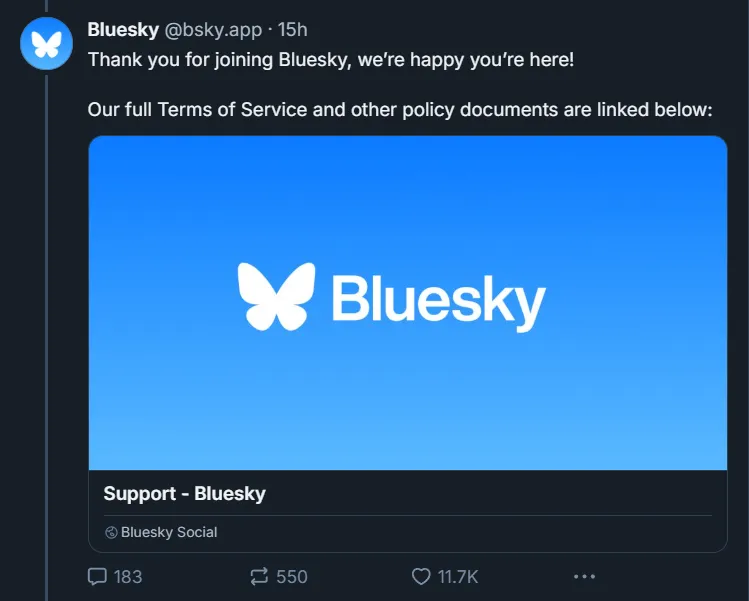Bluesky Promises Not to Use Your Content for AI Training Unlike Other Platforms

Essential Information:
- Bluesky has made a clear commitment to refrain from utilizing user-generated content for the purpose of training generative AI, setting itself apart from X’s recent policy that permits such practices.
- The platform is experiencing impressive growth, now boasting more than 17 million users and welcoming over 1 million new signups in just the past week.
- Although Bluesky employs AI technologies for content moderation and to enhance its Discover feed, it stresses that these applications do not involve generative AI trained on user data.
In a strategy that differentiates it from its peers, Bluesky has officially stated it won’t use users’ posts for generative AI model training. This announcement arrives at a critical time, as X (previously known as Twitter) has recently revised its terms of service to permit AI training utilizing user content.
The rapidly expanding social platform made this proclamation during a remarkable increase in its user base, with over a million new registrations within a 24-hour span, bringing the total to over 17 million users. This influx closely follows a significant departure of users from X, particularly in light of recent political shifts and policy revisions.

While Bluesky remains dedicated to not employing users’ posts for AI training, there is an important caveat. According to The Verge, the current technical framework of Bluesky does not stop major AI entities from potentially scraping user content. Being an open and public network, Bluesky’s robots.txt file permits crawlers from organizations such as Google and OpenAI to access its data. Nevertheless, the company assures that it is working diligently to develop measures ensuring user consent is respected by external entities.
Bluesky also points out that while it makes use of AI technology, its applications are confined to particular purposes. The platform employs AI for content moderation, which aids in protecting human moderators from harmful material, and enhances the algorithms that drive its Discover feed. Importantly, the company asserts that none of these systems utilize user-generated content for training.

For those seeking more comprehensive insights, Bluesky has made its policy documentation easily accessible in a centralized hub, including terms of service and community guidelines.

This position is especially significant for artists and creators who have found a welcoming environment on Bluesky. Many content creators have voiced concerns about their work being appropriated for training AI on competing platforms, highlighting the importance of Bluesky’s pledge.
The timing of this declaration is critical, coinciding with X’s rollout of new terms that explicitly permit the use of public posts for AI training. This contrast in user data management and AI development practices underscores the widening gap in how different social media platforms tackle user privacy and content ownership.


Leave a Reply